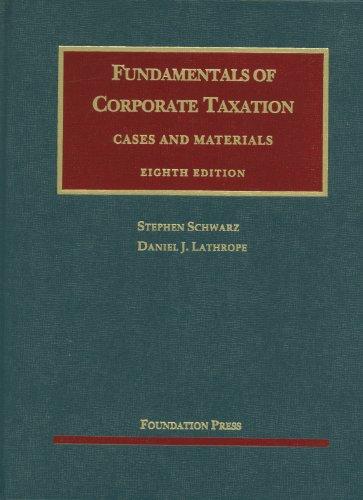Stephen Schwarz
Emeritus Professor of Law UC Hastings College of the Law

UC Hastings College of the Law
View more experts managed by UC Hastings College of the Law
Biography
In 1974, after a year in private practice, Professor Schwarz joined the faculty of the University of San Francisco School of Law. He also has taught as a Visiting Professor in the graduate tax programs at the University of Florida College of Law and New York University School of Law, and at UCLA School of Law and Arizona State University College of Law. He joined the UC Hastings faculty in 1981, was Associate Academic Dean from 1983 to 1985, and became an Emeritus Professor in 2004.
Professor Schwarz is the coauthor of several law school casebooks, including Fundamentals of Corporate Taxation and Fundamentals of Partnership Taxation (with Lathrope), and Nonprofit Organizations (with Fishman and Mayer).
Professor Schwarz lives in Marin County and maintains vacation homes at Stanford’s Roscoe Maples Pavilion, The Oakland Coliseum, and Hohokam Stadium in Mesa, Arizona. His hobbies do not include hiking, golf, cats, fly fishing, or public choice theory, or repeal of the federal estate tax.
Areas of Expertise
Education
Columbia Law School
J.D.
Law
1973
Brown University
B.A.
American Civilization
Links
Selected Articles
Recent Developments in Tax-Exempt Organizations
University of San Francisco Law Review1983-01-01
Not since 1969, when Congress loosed a kennel of statutory watchdogs to harry the private foundation, has there been a year of such turmoil. Long-simmering issues in bizarre factual trappings forced themselves upon the appellate courts. Foundation managers who once eschewed the risk of investing in common stocks attended seminars on syndication and peddled their buildings and equipment to shelter-hungry investors - a process which raised the "Doing Better By Doing Good" banner over all manner of previously tax-inert properties...
Limiting religious tax exemptions: When should the Church render unto Caesar
University of Florida Law Review1976-01-01
The Bible relates that when the Pharisees asked Jesus whether it was permissable to pay taxes to Caesar, Jesus replied that one should "Render unto Caesar the things that are Caesar's and unto God the things that are God's." The Pharisees had hoped to entrap Jesus with their inquiry, but his responses took them by surprise. It was said that they marvelled at the facility with which he avoided answering their question while seeming to answer it with such profundity. But scholars suggest that his answer was no answer at all, because Jesus failed to disclose what things were Caesar's and what things were God's and who was to decide what rightfully belonged to each...








